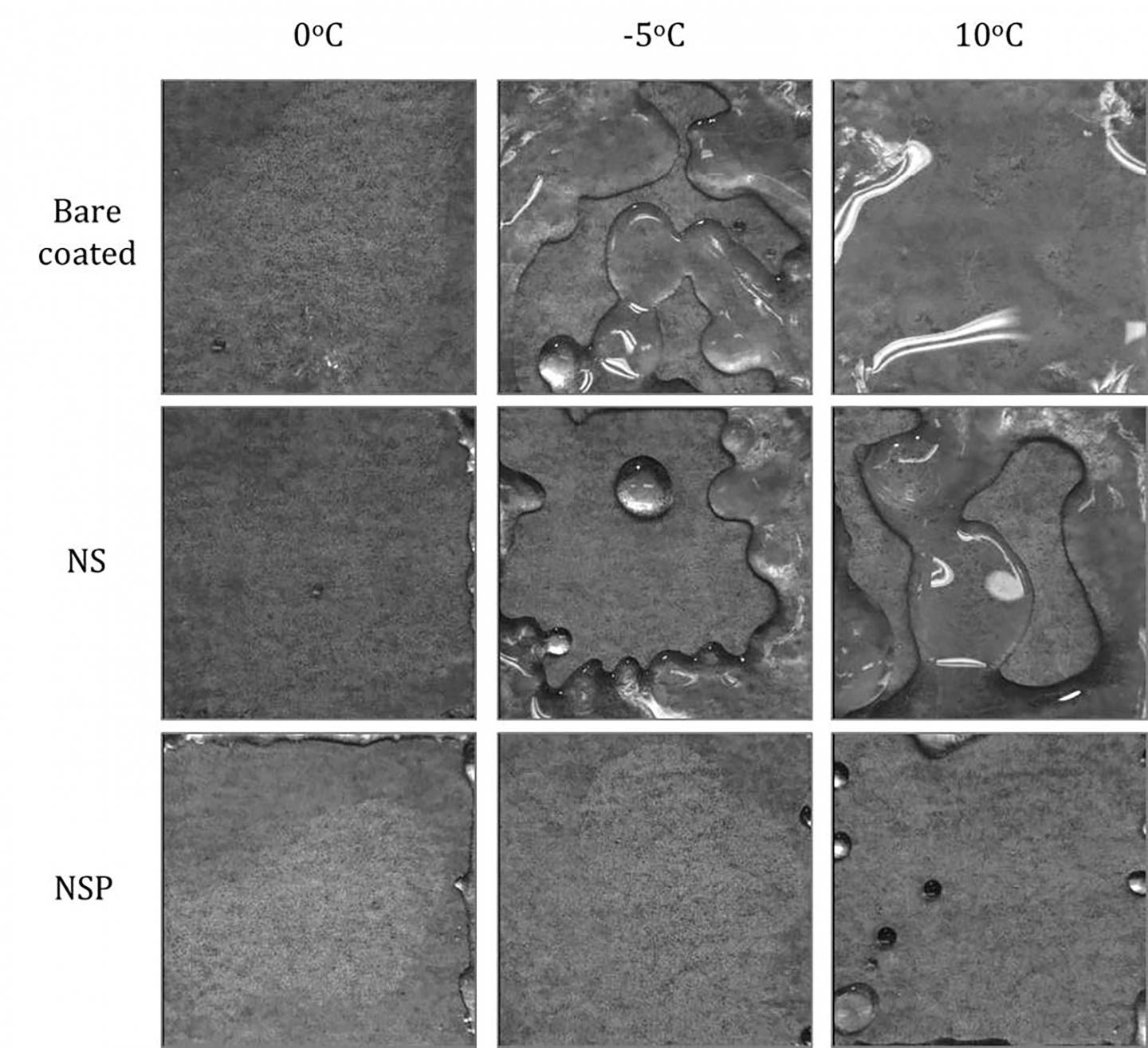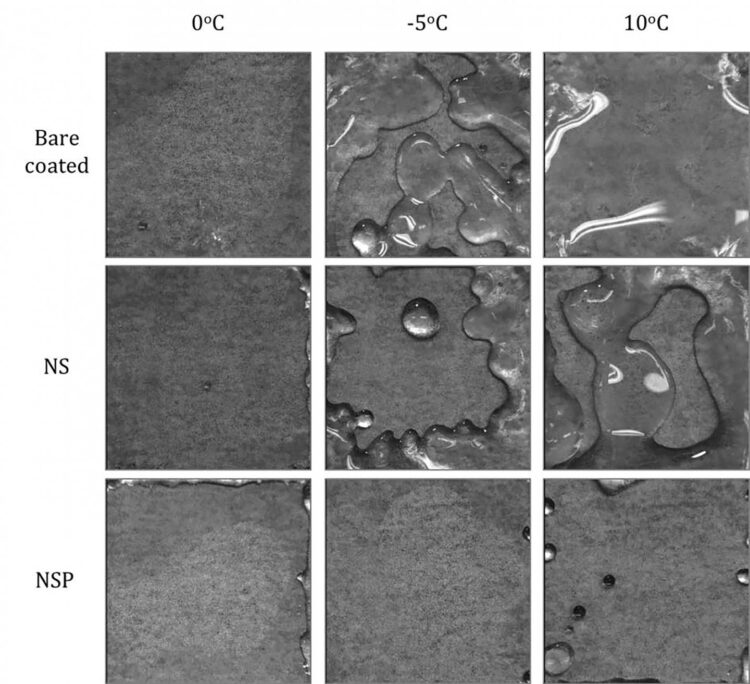Nanostructures covered with a paraffin layer modeled on moth eyes exhibit anti-icing, anti-reflective properties

Credit: Nguyen Ba Duc
WASHINGTON, August 4, 2020 — Researchers have been working for decades on improving the anti-icing performance of functional surfaces. Ice accumulation on aircraft wings, for instance, can reduce lifting force, block moving parts and cause disastrous problems.
Research in the journal AIP Advances, from AIP Publishing, investigates a unique nanostructure, modeled on moth eyes, that has anti-icing properties. Moth eyes are of interest because they have a distinct ice-phobic and transparent surface.
The researchers fabricated the moth eye nanostructure on a quartz substrate that was covered with a paraffin layer to isolate it from a cold and humid environment. Paraffin wax was chosen as a coating material due to its low thermal conductivity, easy coating and original water repellency.
“We evaluated the anti-icing properties of this unique nanostructure covered with paraffin in terms of adhesion strength, freezing time and mimicking rain sustainability,” said Nguyen Ba Duc, one of the authors.
Ice accumulation on energy transmission systems, vehicles and ships in a harsh environment often leads to massive destruction and contributes to serious accidents.
The researchers found the moth eyes nanostructure surface coated in paraffin exhibited greatly improved anti-icing performance, indicating the advantage of combining original water repellency and a unique heat-delaying structure. The paraffin interfered in the icing process in both water droplet and freezing rain experiments.
The number of air blocks trapped inside the nanostructure also contributed to delaying heat transfer, leading to an increase in freezing time of the attached water droplets.
“We also determined this unique nanostructure sample is suitable for optical applications, such as eyeglasses, as it has high transparency and anti-reflective properties,” said Ba Duc.
The high transparency and anti-reflective effects were due to the nanostructure being modeled on moth eyes, which have these transparent and anti-reflective properties.
###
The article, “Investigate structure for transparent anti-icing surfaces,” is authored by Nguyen Ba Duc and Nguyen Thanh Binh. The article will appear in AIP Advances on Aug. 4, 2020 (DOI: 10.1063/5.0019119). After that date, it can be accessed at https:/
ABOUT THE JOURNAL
AIP Advances is an open access journal publishing in all areas of physical sciences–applied, theoretical, and experimental. The inclusive scope of AIP Advances makes it an essential outlet for scientists across the physical sciences. See https:/
Media Contact
Larry Frum
[email protected]
Related Journal Article
http://dx.





